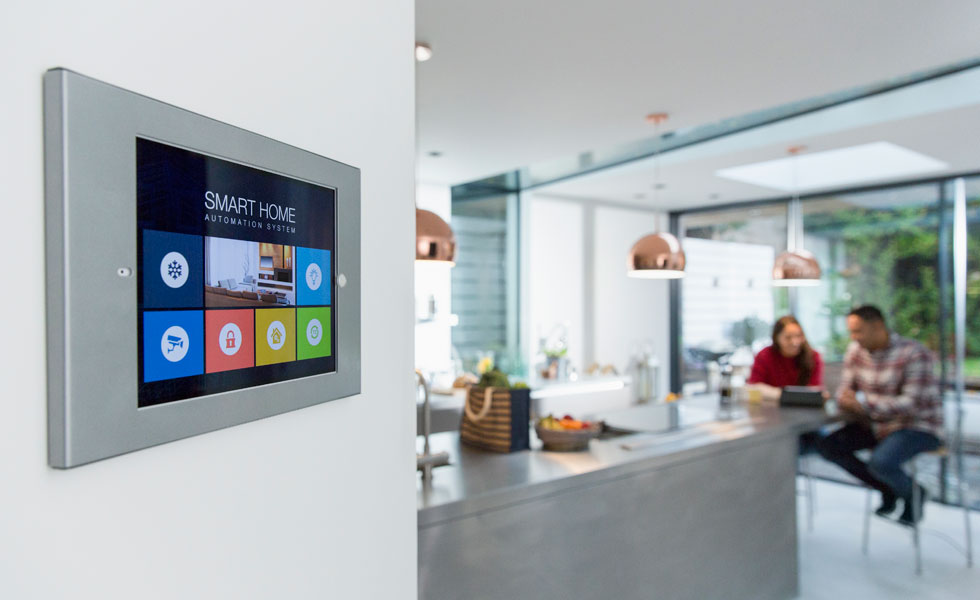In todays technologically advanced world, ensuring the safety of our homes and businesses is more crucial than ever. The evolution of security systems has led to the development of smart alarms, which offer enhanced protection and convenience. But how do these smart alarms work, and why are they becoming a preferred choice for many homeowners and businesses?

The Basics of Smart Alarms
At the core, smart alarms are security systems integrated with modern technology to provide real-time alerts and monitoring. Unlike traditional burglar alarms, smart alarms leverage the power of the Internet of Things (IoT), allowing users to control and monitor their security systems remotely via smartphones or other smart devices.
Components of Smart Alarms
Understanding how smart alarms work involves knowing their key components, which typically include:
- Sensors: These detect motion, door/window openings, or glass breakage.
- Cameras: Offering real-time video surveillance and recording.
- Control Panel: The central hub that connects all devices in the system.
- Mobile App: Allows remote access and control of the alarm system.
How Smart Alarms Function
The functionality of smart alarms is a blend of advanced technology and user-friendly interfaces. Here's a closer look at how they operate:
Real-Time Alerts and Monitoring
One of the standout features of smart alarms is their ability to send real-time alerts to your smartphone. Whether its a potential break-in or an activated sensor, youre immediately informed, allowing for quick action.
Integration with Smart Home Devices
Smart alarms can be integrated with other smart home devices, such as smart locks, lights, and thermostats. This integration allows for automated actions, like locking doors or turning on lights if an alarm is triggered, enhancing security measures.
Smart Home Safety can be further enhanced by using encrypted connections and strong passwords for all devices.Remote Access and Control
With a dedicated app, users can arm or disarm their systems remotely, check the status of sensors, and even view live camera feeds. This level of control is invaluable for those who travel frequently or manage multiple properties.
Benefits of Smart Alarms for Homeowners and Businesses
The adoption of smart alarms offers numerous advantages:
Enhanced Security
By providing comprehensive surveillance and instant alerts, smart alarms increase the overall security of your property. They're designed to deter criminals and provide peace of mind.
Smart Home Guide offers insights into choosing the right system for your needs.Cost-Effective
While the initial investment might be higher than traditional systems, the long-term savings from potential theft prevention and reduced insurance premiums make smart alarms a cost-effective choice.
Customizable Features
Smart alarms come with a range of customizable features, allowing users to tailor the system to their specific needs. From setting up specific alert tones to defining sensor sensitivity, customization is key.
Smart Home Privacy is also enhanced, allowing users to manage who can access the system and data.Challenges and Considerations
While smart alarms offer numerous benefits, there are some challenges to consider:
Connectivity Issues
Since smart alarms rely on internet connectivity, any disruption can affect their performance. It's essential to have a reliable internet connection or consider systems with backup options.
Data Privacy Concerns
With the increased connectivity of smart alarms, data privacy is a significant concern. Its crucial to choose systems with robust security measures to protect user data.
AI and Privacy explores how AI-powered features can enhance security while maintaining privacy.Potential for Hacking
As with any connected device, there is a risk of hacking. Regular updates and strong passwords are vital to safeguard against unauthorized access.
Future of Smart Alarms
The future of smart alarms looks promising, with continuous advancements in technology leading to more sophisticated systems. Features like AI-based threat detection, voice control, and advanced integration with smart home ecosystems are set to redefine security standards.
Conclusion
Understanding how smart alarms work is crucial for anyone considering upgrading their security system. With their ability to provide real-time alerts, remote access, and integration with other smart devices, they offer unparalleled convenience and safety. For homeowners and businesses alike, investing in smart alarms is a step towards a more secure future.

FAQs about Smart Alarms
What makes smart alarms different from traditional alarms?
Smart alarms offer real-time alerts, remote monitoring, and integration with other smart home devices, unlike traditional alarms which often rely on local alerts and require manual monitoring.
Can smart alarms work without the internet?
While internet connectivity enhances their functionality, some smart alarms offer backup options like cellular networks to ensure continued operation during internet outages.
Are smart alarms difficult to install?
Most smart alarms are designed for easy installation, often requiring no professional assistance. However, for comprehensive systems, professional installation might be recommended for optimal setup.
For a detailed guide on setting up your smart home security system, visit Smart Home Installation Guide.

